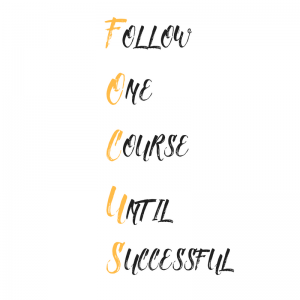29 Ways To Get More Writing Done

How much writing do you get done every day? What’s a decent word count for you? 500 words? 1000? 5000? A lot will depend on your circumstances, energy levels and whether this is your full-time job, a side hustle or a hobby. But I’ll bet that many of you answered the question, ‘How much writing do you get done each day?’ with the phrase ‘Not enough,’ or something similar.
As freelance writers and indie authors, we’re always looking for ways to be more productive. Small tweaks can help us up our daily word count and hit our writing goals sooner. Here are a few of the daily writing hacks that help me hit my deadlines and (most of) my personal writing goals.

Disclosure: Sometimes my work here (and all around the web) contains affiliate links. Find out what that means here.
Start by reading Write Better, Faster by Monica Leonelle
Even if you’re already a productivity ninja like me (I am too, sort of – I’ve even written my own book on the topic), this will give you specific tips for actually turning out your writing projects faster. I read it recently and it’s a game changer.
Let go of what’s not important
Sometimes goal pruning is more important than goal setting. Are you still working towards something that no longer fires you up? Let it go.
Clear mental clutter
Unfinished writing projects create mental clutter. Either finish them, drop them or file them away deep in the folders of your hard drive to return to later. Assign them a level of priority for when you do have time to get back to them.
Clear digital clutter
Clean up your desktop. Empty your inbox. Unsubscribe from newsletters and blogs. Pare things down to find stuff you can actually use.
Set an intention
It’s a little mental trick that can help you focus on your writing. I blogged about making one word resolutions this New Year. And my word is Create. Your one word resolution can also be your intention. In her book Happy Habits, Vicki Morris suggests you spend a few minutes focusing on your intention every morning. You can do it before you even get out of bed.
Try the 90/90/1 rule
I borrowed this one from the great Robin Sharma (who pretty much wrote the book on how to be great at everything). As he puts in on his website:
“For the next 90 days, devote the first 90 minutes of your work day to the one best opportunity in your life. Nothing else. Zero distractions. Just get that project done. Period.”
Or try Monica Leonelle’s method for dividing up your writing time
She uses a simple grid system to plan her writing day, and she explains it really clearly (with pictures!) here.
Outsource
Or delegate. Everything you can. From editing to cover design to house cleaning. It’s easier than you think, especially if you get it right from the start. Try and spend your time doing what only you can do.
Focus on one thing at a time
One essay. One article. One book. One blog. One major writing project of any kind.

Then follow another.
Consider dictating your writing
This is not as easy as it sounds, depending on the devices and software you have available. My Mac has inbuilt speech-to-text dictation, but it doesn’t love my English accent. My work needs a lot of tidying up afterwards, but it works really well for many writers.
My esteemed colleague, Monica Leonelle, is getting a lot of shout outs today, but if you’re going to try this you should probably read Dictate Your Book.
Subscribe to the Productive Writers Blog
Specific advice for writing productivity, in bite size snippets.
Take breaks
It’s counter intuitive but breaks are productivity essentials. We slow down once we’ve been working for a while and speed up just after a break. I talk more about how too much work reduces productivity in this article.
Add variety
Also counter intuitive, but writing all the time isn’t always a recipe for producing more words. Doing something else creative can restore flow when you’re flagging and help you write quicker and better when you return to your project.
Don’t multi-task on creative tasks
Most of what we perceive as multi-tasking is actually task switching, and we lose momentum every time we switch.
Do multi task on automatic tasks
We CAN truly multi-task when we’re doing something very automatic like driving or walking, so that’s a great time to also do something else like listen to podcasts or audio books.
Plan lightly every evening
Knowing your first few tasks for the morning gets you started quicker.
Plan deeply every week
Taking twenty minutes to plan out your week often means you spend less time making decisions over the next seven days and less time firefighting the unexpected (which is probably not that unexpected at all if you think things through at the beginning of the week).
Separate writing and thinking about writing
Think, brainstorm, plot, plan and outline at a separate time than you actually do your writing. That way you always sit down to actually write with a plan of some kind.
Check email and social media twice a day
Then cut it down to once a day, then once a week. I’m kidding. Once or twice a day is fine, and it sounds doable now you’ve considered once a week, doesn’t it?
Take a writing course
Consider a real-world offline one, with homework. Don’t be the kid who has to think of an original excuse for why she didn’t do her homework. Don’t have the time or opportunity for real world courses and classes? Try a virtual course, like Write Your Way to Your First $1K course or the excellent Blog Writing Bootcamp.
Take a one day writing workshop
Where you focus on nothing but writing. Unless you truly live in the middle of nowhere, you can probably find one within easy traveling distance of your home.
Book a writing retreat
Where you focus on nothing but writing. I’m saving up for one of these on Skyros. I’m also following author Derek Murphy’s plans to buy a castle and offer writing retreats there.
Use your downtime wisely
Read something excellent in the genre you’re writing in.
Or use it to research markets
Also known as browsing magazines and websites you want to pitch (sounds almost like leisure time, doesn’t it?).
Or read something about writing
On my nightstand…
Coach Yourself To Writing Success by Bekki Hill
How To Write and Sell Short Stories by Della Galton
Creating Fictional Characters by Howard Lauther
All proving insanely useful.
Take a writing device everywhere
You didn’t really need reminding of that one did you? A notebook. Your journal. Your phone. Anything you can write on or in, basically.
Write in three minute bursts
In the commercial break, in the supermarket checkout line, while you’re waiting for the exercise class before yours to finish.
Stockpile ideas
So you always have something to be working on in your three minute bursts. (even if it’s just a character description, a blog post outline or a list of potential article titles).
Love what you do
If you’re not writing enough, make sure you’re in love with your current or main writing project. Even if you have to fit it around your money-making projects, make this the year that you also work on a passion project, every day.
Need some better systems to help you run your freelance career? Check out the Freelance Writer’s Success Kit. Subscribe to my list and you’ll get the chance to grab it for half-price, along with a totally FREE report on Freelance Writing Markets That Pay.






Leeanna Philp
June 8, 2018
I’ve been absent for a while, but now I remember why I used to love this site. Thanks , I will try and check back more frequently. How frequently you update your web site?
Karen
June 8, 2018
Glad to have you back, Leeanna. The blog is usually updated once a week, on a Friday. 🙂
Alonzo Cubano
July 30, 2018
With thanks! Valuable information!
Mark McLoughlin
May 10, 2020
Hi Karen where do recommend for hiring writers online. I need some articles writing and find it difficult to find decent writers who can not only write in decent English but also research the actual theme instead of just re-spinning stuff they find. It’s a gardening project I am doing about Cordless Garden Tools so need to related to this subject. Any advice would be great.
Karen
May 13, 2020
Hi Mark. There are various online brokers you could use, such as Upwork, Guru, or PeoplePerHour. You could also get in touch with me. I do a little work in this area. One of the brands I work with is Notcutts, a chain of UK Garden Centres, writing product descriptions and website copy. Check my Hire me page for rates and terms.